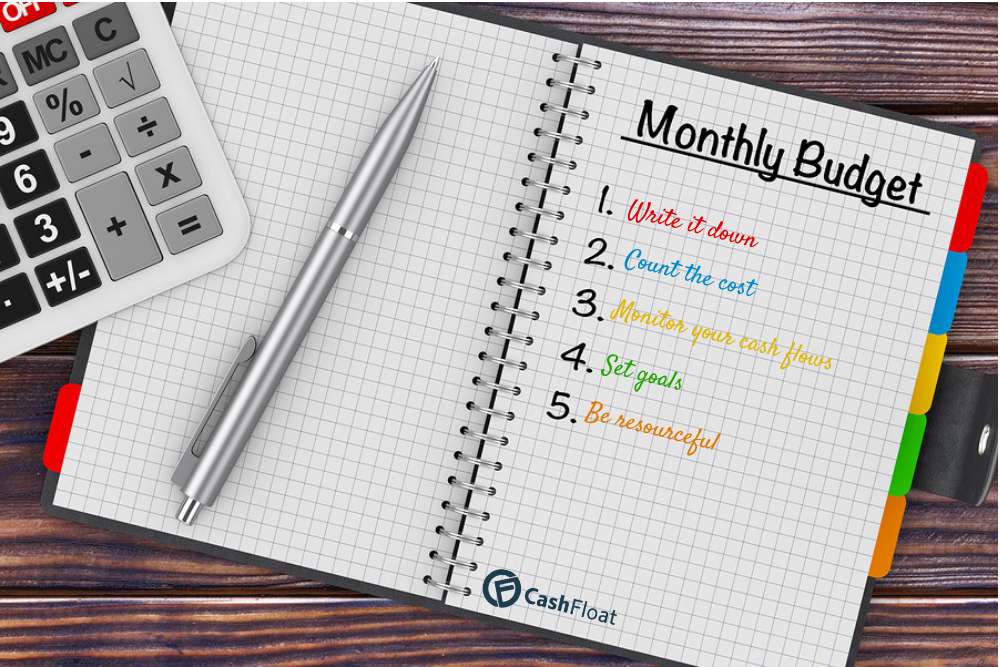How to Start Budgeting with a Low Income

Introduction
Today we explain How to Start Budgeting with a Low Income. People living on a small income might be stressed when it comes to management of funds, but budgeting offers a plan of how to attain stability. A budget is to know where your cash is going and to make sure you have enough money needed for the necessities of life, and to save for future expenses.
Even, at any choice, even with minimum salaries, it is possible to strive for financial security. They will provide tips, tools and helpful suggestions in relation to budgeting that are intended for low paid workers, so saving and managing your money is much easier than you think.
Understanding the Basics of Budgeting
Budgeting is the act of setting out how you are going to spend your money. In it, one is supposed to determine the various ways of generating income and then provide for expenses as well as savings. A good budget enables one not to use money in a way which s/he does not earn. The secret is to learn the difference between the necessity and the luxury, the latter must be met only after the former. When it comes to basic and easy to use budgeting strategy, you should begin with a simple and basic budget template.
Why Budgeting Is Essential for Low-Income Earners
To low earners, budgeting is a vital hope for that they need for economic stability. It enables you to pay for basic needs that cannot be done without, such as rent, food and utility bills to mention but a few while steering clear of all the other fancy debts which are not important at all.
In essence, having a budget helps avoid such problems as expenses, or lack of personal savings. An effectively managed budget is one where that each expended dollar has been budgeted for, in order to attain short term objectives of the defined budget line and long term objectives even when resources are scarce.
Financial goal-settings are greatly determined by the following factors
This section suggests that to have a good budget one has to set achievable targets as a financial guide. First of all, you have to define what is a priority for saving, whether it can be, for instance, paying some debts, creating an emergency fund or purchasing necessities. This clarifies it in those pertinent details about goal setting that they should avoid trying to cover broad goals in large chunks.
For instance, I want to save $500 in six months: it is rather simple once you divide this sum into weekly goals and save $20 a week. Realizing obtained aims and objectives pushes you forward because you want to achieve more within the targeted goals and objectives.
Tracking Your check and expenditure in the best possible manner
Recording of income and expenditure is the foundation of implementing budgeting. First, it will be helpful to make a list of all known sources of income and establish a simple budget where all the expenses should be divided into necessary and unnecessary ones. Make use of inquiries and receipts and the use of conventional books and even using computers and Google to record every transaction. Checking your spending patterns once in a while helps you remember areas that you should avoid spending so that you do not go overboard.
Making the Reality of Budgeting Actually Possible and Effective
An analysis budget can be defined as a practical budget since it takes into consideration your skills as well as your ability to earn an income. Start with the 50/30/20 rule: spend 50% of your monthly income to needs, 30% to wants, and 20% to savings or paying off the debts. Modify these percentages with regard to your needs. Posible – Be reasonably ‘bendy’ and remember that your budget should mostly mirror your current way of life but should also include realistic ways of reaching your ends.
Cutting Unnecessary Expenses Without Sacrificing Quality of Life
Reducing costs does not equal sacrificing the use of things that make life worthwhile. Try and cut costs, like avoiding buying cooked meals or taking a bus instead of a taxi, or watching free movies. Remember, free trials and subscriptions or club and organization memberships that you seldom make use of. Little sacrifices combined can go a long way in helping a person set aside some money and still be able to live well.
Budgeting tools or apps to enhance its management.
There is a way to categorize the process of money spending, using budgeting tools and applications. There is the Mint app, YNAB (You Need a Budget), and PocketGuard which assist in tracking spending, setting goals, and keeping tabs on progress. These tools help to shed some light on your financial behaviours meaning it is easier to spot ways that you need to change. Most of them being available online, they are either free or cost friendly which is convenient for anyone including the low income earner.
Establishing an emergency fund: tips for the financially strapped
Everybody must save for an emergency the same goes for people earning little income per month. One advice that you can follow is to begin saving a limited amount of cash from the beginning, within the range of 5 to 10 dollars a week put aside. These little amounts are saved over a long time, thus ensure a hedge for cases such as operations or car breakdowns. Your emergency fund is most effective if it is in a separate savings account where you will not be tempted to spend it on other needs.
How to achieve the biggest savings – by learning how to spend wisely
Smart spending simply means that you plan how you are going to use your money. Save money by looking for special offers, and using vouchers and rebates when shopping. Use as many coupons as possible particularly on items one has to buy anyway, and do not buy anything that was not on the shopping list. All these small ways you are able to cut Cached expenses and therefore be in a position to save more mean cash which you need to meet your financial needs.
Me or Not Consistency: the need to balance it financially and how to modify your budget consequently
That is why, it is very important that certain strategy and rules of budgeting stayed fixed in order to increase the chances for success. Make it a practice to revise your budget you prepare in order prevent yourself from overspending or having less than enough funds to meet your needs.
In a certain capacity, life is best lived spontaneously; therefore, there is always room for change. Small accomplishments must be also recognized, for example paying some bill or achieving some savings goal. As a result, sticking to one’s budget helps you develop discipline and contributes to creating financial stability.
Conclusion
Living on a low income means that more discipline and effort would be needed for this function to work, but these make budgeting a very strong way of attaining for financial stability. It’s so much easier when you set achievable goals, pay attention to all the costs, and use various tools to create an effective budget for your circumstances. Persistence and intelligent budgeting will see you establish a reserve and conquer odds with ease. Remember, that every step you make take you closer to a well-established financial future.







